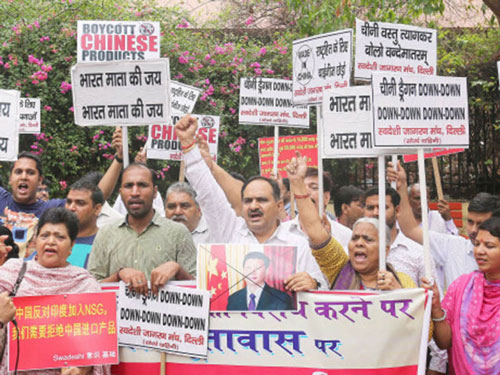Beijing
As a response to China’s release of information about death of its four soldiers during a clash with Indian border troops in June last year, some Indian media and public opinion either hinted at or directly suspected China’s concealment of actual casualties.
This was stated by Long Xingchun, a senior research fellow with the Academy of Regional and Global Governance at the Beijing Foreign Studies University, and president of the Chengdu Institute of World Affairs in an article published by Global Times.
He said some Indian media even maliciously distorted the facts and exaggerated the casualties on the Chinese side, trying to save face.
This shows that many people in India are weak-minded. Considering India’s humiliating defeat in the 1962 China-India War, many Indian people are desperately longing for a victory. Therefore, they insist that New Delhi has won this time, regardless of the facts, he added.
Indeed, China’s national strength is far stronger than that of India. China’s GDP is about five times that of India, and China’s defense budget is nearly three times than that of India.
This being the case, the two countries’ armies have still started to disengage simultaneously, which can be regarded as a victory for India to some extent because India could have suffered a huge loss. Strategically, it is China’s good wish to not have military conflicts with India and try its best to resolve disputes through peaceful means. However, Indian public opinion regards this as Beijing’s weakness.
He went on to say that New Delhi cannot accept the failure and thus it portrays itself as a winner. There is actually no basis for India to exaggerate casualties of the Chinese side.
Some Indian people are eager to win and they feel that only by exaggerating Chinese casualties can they prove India has won. Therefore, Indian media and public opinion are deceiving themselves and distorting the facts, trying to regain a little confidence.
n Indian citizen said on Twitter that if only 4 had died then China wouldn’t have pulled back.This represents a general tendency of Indian public opinion.
They believe that if China really obtained such a big advantage, then Chinese soldiers would have to launch a full attack. But China did not do so, so they doubt the information released by Chinese officials. Indian public opinion not only fails to understand China’s restraint, but is even wantonly discrediting the Chinese side.
India has been influenced by a Western mentality, including the zero-sum mentality. Indian public opinion does not understand China’s sincerity in resolving disputes.
It is difficult for many Indian people to understand why China would exercise restraint when the country has an advantage in its national strength, military and economy. China could have easily resolved the border dispute with India through war, but China did not.—APP










